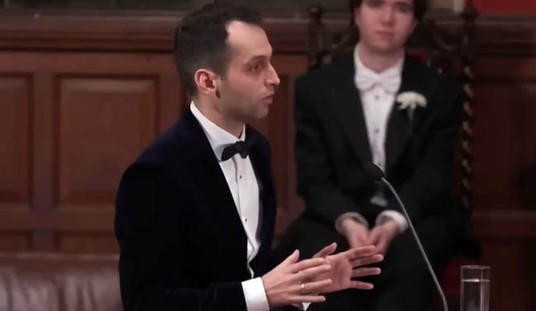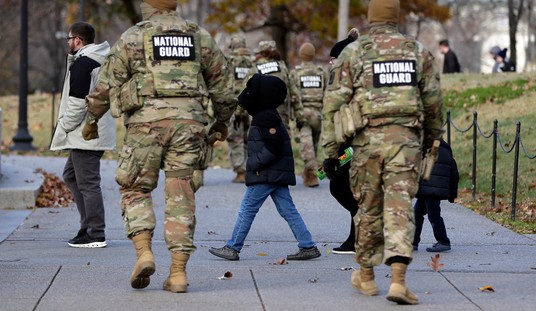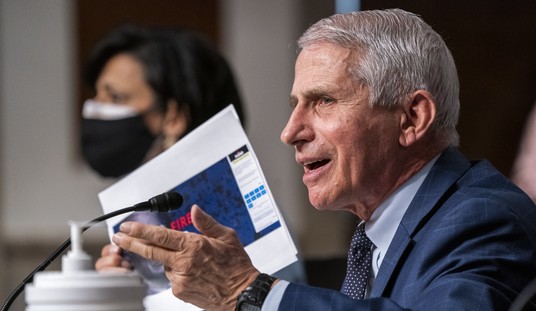The Innocence Project has made a large impact on the debate over the death penalty, in part by re-investigating cases that sent defendants to Death Row and getting their convictions reversed. That is how Anthony Porter found himself freed from prison after being convicted of a double homicide in Chicago after several eyewitnesses identified him as the gunman. The Innocence Project found a man who confessed to the murders, and Alstory Simom was convicted and ended up doing 15 years.
Why only 15 years? The Cook County Attorney’s office moved to have Simon’s conviction set aside after discovering the tactics used by the Innocence Project of Northwestern University to get the confession:
The investigation by the Innocence Project, [Cook County State’s Attorney Anita Alvarez] said, “involved a series of alarming tactics that were not only coercive and absolutely unacceptable by law enforcement standards, they were potentially in violation of Mr. Simon’s constitutionally protected rights.”
Alvarez isn’t kidding. The Journal-Sentinel’s Jim Stingl, who was initially skeptical of Simon’s story, describes how Simon got conned into the confession — with help from an attorney who supposedly represented Simon’s interests:
[Northwestern journalism professor David] Protess and two of his journalism students came to Simon’s home in the 200 block of E. Wright St. in Milwaukee and told him they were working on a book about unsolved murders. According to Simon, Protess told him, “We know you did it.”
Then Simon received a visit from Ciolino and another man. They had guns and badges and claimed to be Chicago police officers. They said they knew he had killed Green and Hillard, so he better confess if he hoped to avoid the death penalty.
They showed him a video of his ex-wife, Inez Jackson, implicating him for the crime — a claim she recanted on her death bed in 2005 — and another video of a supposed witness to the crime who turned out to be an actor.
They coached Simon through a videotaped confession, promising him a light sentence and money from book and movie deals on the case. Simon, admittedly on a three-day crack cocaine bender, struggled to understand what was going on.
Perhaps worst of all, they hooked up Simon with a free lawyer to represent him, Jack Rimland, without telling him that Rimland was a friend of Ciolino and Protess and in on their plan to free Porter.
Simon has now been freed. So too has Porter, who got the case dismissed in 1999 and walked off of Death Row, thanks to the Innocence Project. In part because of the Porter dismissal, then-Gov. George Ryan froze all executions, and the state legislature eventually repealed the death penalty in Illinois. And the families of the two victims of that 1982 double homicide have received no justice at all for their loss.
Protess got suspended from Northwestern after his tactics began coming to light, retired not long afterward, and isn’t talking about Simon. Paul Ciolino, the lead investigator for IP in this case, told Stingl that Simon had also confessed to a Milwaukee TV reporter. Stingl doesn’t say what happened to Rimland, whose license to practice law should be investigated after this episode.
Someone needs to answer for what happened with Simon, and someone needs to answer for interfering with justice for the families of the victims. The Innocence Project has spent decades in advocacy against the death penalty and ends-justifying-the-means approaches in prosecution, and it would be very bitter irony indeed if the Northwestern University branch adopted the same tactics and ruined the life of an innocent man in order to push their own agenda.
Update: Where were the media on this case, anyway? In April, Dan Curry at American Thinker predicted that Simon would get exonerated, and said the clues on his railroading had been apparent for years:
The first public clue came in 2005, when Porter incredibly lost his $24 million civil lawsuit to recover damages for his “wrongful” prosecution, conviction and incarceration. In the extremely favorable venue of Cook County Circuit Court in Chicago, after months of favorable press coverage, Porter nonetheless lost because the defense lawyers were able to show that Porter probably committed the murders. It came to light that Northwestern’s alleged witness reversal was overstated and that handfuls of people saw Porter in the vicinity of the crime, several saw him holding a gun, and two saw him fire the fatal shots. Those facts were ignored in the media frenzy at the time of Porter’s release.
As Simon’s lawyers dug into the case, a more sinister side of the story emerged. In a carefully detailed letter to the Cook County State’s Attorney’s office asking for a rehearing of the case, Simon’s lawyers are claiming that Protess and private investigator Ciolino illegally coerced the confession from Simon, using a series of questionable tactics and promising him a short “self-defense” sentence and eventual riches from book and movie deals. The alleged confession was also tainted by Ciolino supplying Simon a lawyer friendly to him and Protess. Incredibly, the lawyer pled his client despite the strong evidence against Porter, and, in the midst of pending proceedings, gave an award to Ciolino and Protess for uncovering “evidence” against his clients. (Protess and Ciolino deny they did anything improper in the Porter case).
Buttressing the notion that Simon’s confession was phony were recantations from the two witnesses Northwestern dug up against Simon. Both said they were promised money or favors for their fake testimony, according to Simon’s court filings. In addition, Simon told several people at the time of his confession that it was coerced and not true.
No evidence remains that Simon committed the murders. Nobody saw him at the crime scene near the time of the murders. No physical evidence exists. All that remains is his “confession.” Meanwhile, eight solid witnesses finger Porter at the scene of the crime at the time of the murder. Two saw him do the shooting. In addition, a top prosecutor in the Cook County office has signed an affidavit attesting that he was dubious about the Porter exoneration and said so within the office at the time. …
I first noted something fishy about the Porter case in 2006 on a blog and was met with stony silence. Several years later, retired Pulitzer Prize winning Chicago Tribune reporter William Crawford wrote a detailed analysis of the case and pitched it to former colleagues at various media outlets. He was ignored and even mocked. But he appears to have been right.
A quirky Chicago cop named Martin Preib has picked up the crusade. Preib, a self-described mediocre lawman, happens to be a gifted writer on the side. His second book, Crooked City, traces his astonishment about the Porter case and others, once he dug into the facts. He brilliantly tells the story about the fraudulent exoneration via his personal odyssey to uncover the truth and through the story of one of the original investigators who was outraged that Porter was released.
How many other “exonerations” did Innocence Project create out of whole cloth? Maybe in the future, we should leave investigations to investigators rather than journalism students, eh?









Join the conversation as a VIP Member